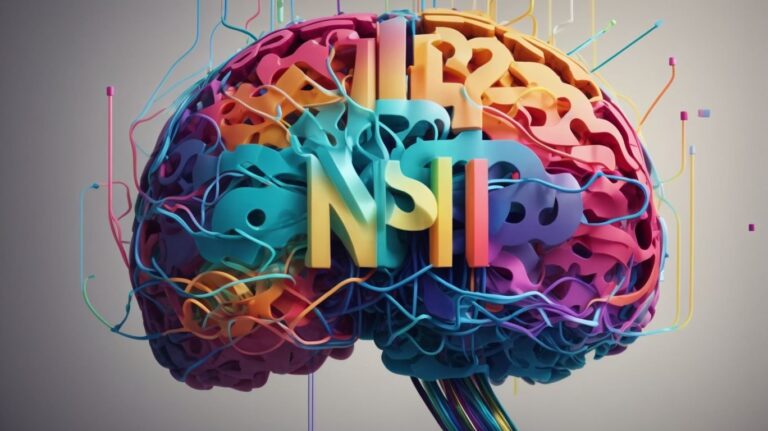In today’s digital age, the intersection of technology and psychology is paving the way for innovative career paths in the field of mental health. From virtual reality therapists to data analysts for mental health research, the opportunities for tech-savvy professionals in psychology are endless.
But what skills are required for these roles, and what education and training do aspiring individuals need to pursue them? Join us as we delve into the impact of technology on psychology and explore the job outlook and salary potential for these exciting career paths.
Contents
- 1 What Is the Intersection of Technology and Psychology?
- 2 What Are Some Tech-Savvy Career Paths in Psychology?
- 3 What Skills Are Required for These Career Paths?
- 4 What Education and Training Is Needed for These Career Paths?
- 5 What Are the Job Outlook and Salary Potential for These Career Paths?
- 6 Frequently Asked Questions
- 6.1 What are some tech-savvy career paths in the field of psychology?
- 6.2 What skills are required for tech-savvy careers in psychology?
- 6.3 How does technology play a role in mental health treatment?
- 6.4 What industries can I work in with a tech-savvy psychology career?
- 6.5 Is it necessary to have a psychology background for a tech-savvy career in psychology?
- 6.6 What are the benefits of pursuing a tech-savvy career in psychology?
What Is the Intersection of Technology and Psychology?
The intersection of technology and psychology represents a fascinating realm where insights from human behavior merge with advancements in tech innovation.
Technology has not only revolutionized the way psychological data is collected and analyzed but also opened up avenues for innovative therapeutic interventions and mental health support systems. As virtual reality and artificial intelligence continue to advance, psychologists can now utilize these tools to simulate real-life scenarios, conduct virtual exposure therapy, and tailor interventions to individual needs with greater precision.
The rise of digital mental health platforms and teletherapy services has made psychological support more accessible to a wider population, overcoming barriers such as geographical distance and stigmatization. These digital tools allow for continuous monitoring of psychological well-being, personalized interventions, and enhanced communication between mental health professionals and clients.
How Has Technology Impacted the Field of Psychology?
Technology has revolutionized the field of psychology by providing tools to analyze human behavior, gather data, and offer innovative solutions for mental health.
Advances in technology have enabled psychologists to collect vast amounts of data through digital platforms, wearable devices, and virtual reality simulations. This data-rich environment has paved the way for more accurate assessments and personalized treatment plans.
The integration of artificial intelligence and machine learning algorithms has facilitated the development of predictive models for mental health conditions, enhancing diagnostic accuracy and treatment outcomes.
Therapeutically, technology has introduced novel approaches such as telepsychology, virtual reality exposure therapy, and smartphone applications for cognitive behavioral interventions, making mental health care more accessible and convenient for individuals.
What Are Some Tech-Savvy Career Paths in Psychology?
Tech-savvy professionals in psychology have diverse career paths, ranging from UX design for mental health apps to data analysis in research settings.
These individuals can leverage their understanding of human behavior and cognition in roles such as developing tailored user experiences for online platforms or conducting statistical analysis to extract meaningful insights from large data sets.
In addition, they can apply their expertise in market research to help companies better understand consumer behavior and preferences, or they can use their technical skills to create innovative software solutions for mental health interventions.
The intersection of psychology and technology offers a wealth of exciting opportunities for those interested in making a positive impact through the utilization of cutting-edge tools and methodologies.
Virtual Reality Therapist
Virtual Reality Therapists leverage cutting-edge technology to create immersive therapeutic experiences that address various aspects of human behavior and mental health.
They utilize VR technology to simulate environments that promote relaxation, exposure therapy, and skill-building. Through personalized virtual scenarios, patients can confront fears, develop coping mechanisms, and improve social skills in a controlled and supportive setting.
These therapists employ a range of techniques such as cognitive-behavioral therapy, mindfulness exercises, and desensitization protocols within the virtual realm to enhance treatment outcomes. The immersive nature of VR therapy allows for real-time monitoring of patient progress, fine-tuning interventions, and providing immediate feedback to optimize therapeutic effectiveness.
To explore tech-savvy career paths in the field of psychology, you can check out this reputed source that provides valuable insights and guidance.
Telepsychologist
Telepsychologists provide counseling and therapy services using telecommunication technologies, adapting traditional psychological approaches to remote interactions.
Utilizing video conferencing platforms, messaging apps, and online tools, telepsychologists cater to clients who may not have access to in-person therapy or prefer the convenience of virtual sessions.
Privacy and confidentiality are paramount in telepsychology, with professionals ensuring secure communication channels and data protection measures. Remote counseling also raises unique ethical considerations, such as informed consent for technology use and managing boundaries in a digital environment.
Digital Mental Health Coach
Digital Mental Health Coaches utilize AI-driven platforms to deliver personalized support, mental health resources, and intervention strategies to individuals in need.
In today’s fast-paced world, where the demands on mental health services are constantly rising, the role of Digital Mental Health Coaches has become pivotal. These professionals harness the power of advanced technology, such as AI algorithms and behavioral interventions, to provide tailored assistance to users seeking help with their mental well-being.
By leveraging digital tools, these coaches can reach a wider audience and offer round-the-clock support that traditional therapy might not always achieve. Their ability to provide instant feedback and continuous monitoring can make a significant impact on an individual’s mental health journey, offering a sense of companionship and guidance.
Data Analyst for Mental Health Research
Data Analysts specializing in mental health research use technology to analyze large datasets, extract insights, and contribute to evidence-based practices in psychology.
Data Analysts play a critical role in deciphering complex data sets within the realm of mental health, employing their skills to uncover meaningful patterns and trends. By utilizing statistical methodologies such as regression analysis and machine learning algorithms, they can validate hypotheses and draw actionable conclusions that shape the future of psychological research.
The advent of cutting-edge technologies has revolutionized the field, enableing Data Analysts to delve deeper into the intricacies of mental health data. Leveraging tools like data visualization software and artificial intelligence, these professionals are at the forefront of innovation, driving forward our understanding of psychological phenomena.
What Skills Are Required for These Career Paths?
Tech-savvy professionals in psychology need a blend of technical expertise, psychological acumen, and strong communication skills to excel in their career paths.
Proficiency in technology applications plays a crucial role in modern psychological practices, allowing professionals to leverage digital tools for research, analysis, and therapy. Understanding fundamental psychological principles is essential to apply technology effectively in mental health assessments and interventions.
A solid foundation in data analysis enables psychologists to interpret and draw meaningful insights from vast amounts of information gathered through various technological platforms. Effective communication skills are vital for conveying complex psychological concepts to clients, collaborating with interdisciplinary teams, and presenting research findings to diverse audiences.
Knowledge of Technology and Psychology
Professionals in tech-savvy psychology roles must possess a deep understanding of both technological tools and psychological theories to bridge the gap between these disciplines effectively.
By merging insights from technology with the nuances of human behavior, individuals in these roles can develop innovative solutions that cater to both user needs and psychological aspects. This integration allows for the creation of user-friendly interfaces, digital interventions for mental health, and personalized experiences based on cognitive principles.
Applying psychological theories within technology design enhances user engagement, improves decision-making processes, and assists in predicting user behavior patterns. The marriage of technology and psychology opens doors to groundbreaking research in areas such as human-computer interaction, artificial intelligence, and behavioral analytics.
Strong Analytical and Critical Thinking Skills
Tech-savvy professionals in psychology require strong analytical and critical thinking skills to interpret data, solve complex problems, and innovate within the field.
By possessing the ability to analyze data effectively, individuals in psychology-related tech roles can derive meaningful insights that guide evidence-based decision-making processes. Critical thinking allows them to evaluate different perspectives, theories, and methodologies, enabling them to develop innovative solutions to challenges in the ever-evolving landscape of technology and human behavior.
These skills play a crucial role in ensuring accuracy and reliability in interpreting and applying statistical findings, which are foundational in fields such as behavioral economics, AI-driven psychology research, and data-driven therapy approaches.
Communication and Interpersonal Skills
Effective communication and interpersonal skills are vital for professionals in tech-savvy psychology roles to collaborate with diverse teams, interact with clients, and convey complex ideas.
These skills are particularly crucial in psychology careers that involve technology, as they facilitate effective teamwork, foster meaningful client relationships, and enable successful interdisciplinary collaborations.
Professionals working within this realm must possess the ability to express psychological concepts in clear and accessible ways to individuals with varying levels of technical proficiency.
Adaptability and Flexibility
Tech-savvy professionals in psychology must demonstrate adaptability and flexibility to navigate the dynamic landscape of technology advancements and evolving psychological practices.
As technology continues to revolutionize the field of psychology, staying on top of the latest developments is crucial. Adaptability allows professionals to pivot swiftly in response to emerging trends, ensuring they remain relevant and effective in their roles. By embracing change and being willing to learn new technologies, psychologists can enhance their skill sets and provide innovative solutions to diverse challenges. Flexibility enables professionals to adjust their approaches based on individual client needs and preferences, fostering a more personalized and impactful therapeutic experience.
What Education and Training Is Needed for These Career Paths?
Tech-savvy professionals in psychology typically pursue a blend of academic degrees, specialized training, and relevant certifications to prepare for their diverse career paths.
For those interested in pursuing a tech-centric role in psychology, a fundamental educational requirement is a bachelor’s degree in psychology, providing a strong foundational understanding of human behavior and psychological principles. To delve deeper into the intersection of technology and psychology, many professionals opt for advanced degrees such as Master’s or Ph.D. in either psychology with a specialization in technology or in a tech-related field with a focus on psychology.
Specialized certifications in areas such as cyberpsychology, human-computer interaction, or data analytics in psychology can further enhance the skill set and credibility of professionals applying technology within psychological practices. These programs offer practical knowledge and hands-on experience that equip individuals with the necessary tools to navigate the complexities of integrating technology into the psychological domain.
Bachelor’s Degree in Psychology or Related Field
A bachelor’s degree in psychology or a related field serves as a foundational educational requirement for individuals aspiring to pursue tech-savvy careers in psychology.
Understanding psychological theories and principles is crucial for professionals venturing into tech-related psychology domains. Individuals with a bachelor’s degree in psychology gain expertise in cognitive processes, human behavior, and social interactions, which are fundamental in creating user-friendly tech interfaces and developing effective digital solutions.
Research methodologies learned during the degree program equip them with the skills to gather and interpret data accurately, aiding in the design and implementation of user-focused technologies. The ability to analyze human responses and perceptions is critical in the tech industry, making this knowledge from a psychology background highly valuable.
Advanced Degree in Technology or Psychology
An advanced degree in either technology or psychology equips professionals with specialized knowledge and skills necessary to excel in complex tech-savvy roles within the field of psychology.
For instance, in the realm of technology, pursuing a master’s or doctorate level degree enables individuals to delve into cutting-edge subjects such as artificial intelligence, cybersecurity, or data analytics, propelling them towards lucrative career paths. Research opportunities in these advanced programs allow students to contribute to groundbreaking innovations and discoveries, shaping the future of technology. On the other hand, advanced degrees in psychology offer in-depth training in counseling techniques, neuropsychology, or clinical research, preparing graduates for diverse roles in mental health institutions, research facilities, or educational settings.
Certifications or Specialized Training in Relevant Technologies
Certifications and specialized training in emerging technologies play a crucial role in enhancing the expertise of tech-savvy professionals in psychology and staying abreast of industry trends.
For professionals in psychology, the world of technology offers a multitude of opportunities for growth and development. UX design training can enable them to create user-friendly interfaces for mental health apps, enhancing the overall user experience. Similarly, diving into data science equips them with the skills to analyze large datasets, deriving valuable insights that can aid in research and therapy techniques.
Understanding AI applications can revolutionize the way psychologists approach diagnosis and treatment, utilizing algorithms for predictive analytics and personalized recommendations. A grasp of cybersecurity measures is essential in safeguarding sensitive patient information in an increasingly digital world.
What Are the Job Outlook and Salary Potential for These Career Paths?
Tech-savvy professionals in psychology can expect a promising job outlook with growing demand and potential for lucrative salaries in diverse sectors of the tech industry.
As tech continues to advance at a rapid pace, companies are increasingly seeking professionals who can bridge the gap between technology and psychology. This has created a wide array of employment opportunities for individuals with expertise in areas such as user experience design, data analytics, and behavioral science.
Specialized skills like AI and machine learning have become particularly sought after in the field, with companies offering competitive salaries to attract top talent. These professionals also have the advantage of diverse career paths, ranging from research positions in tech firms to consulting roles in healthcare organizations.
Growing Demand for Tech-Savvy Professionals in Psychology
The field of psychology is witnessing an increasing demand for tech-savvy professionals who can integrate technology into psychological practices, leading to abundant job opportunities across various industry sectors.
This surge in the need for professionals with a blend of psychological expertise and technological skills is largely driven by the evolving landscape of mental health care. Individuals and organizations are recognizing the benefits of innovative solutions that can improve the efficiency and effectiveness of therapeutic interventions. The use of data-driven approaches in assessing, diagnosing, and treating mental health conditions has become essential for delivering personalized care and tracking treatment outcomes.
Potential for Higher Salaries and Career Advancement
Tech-savvy professionals in psychology have the potential for higher salaries and career advancement opportunities, given the specialized skills they bring to the tech industry and the evolving nature of psychological practices.
These individuals with a blend of psychology and technology expertise are highly sought after in today’s job market. Their ability to leverage data analysis techniques and innovative solutions in addressing psychological challenges sets them apart.
Salary structures in tech-centric psychology roles often reflect the premium placed on these specialized skillsets, with attractive remuneration packages and benefits. The career growth prospects for such professionals are promising, with opportunities to lead research teams, drive digital mental health initiatives, and pioneer cutting-edge therapies. Embracing the intersection of technology and psychology opens doors to lucrative positions and avenues for lifelong learning and development.
Frequently Asked Questions
What are some tech-savvy career paths in the field of psychology?
Some tech-savvy career paths in the field of psychology include user experience (UX) research, virtual reality therapy, telepsychology, and data analysis in mental health research.
What skills are required for tech-savvy careers in psychology?
Having a strong understanding of technology, data analysis, and research methods are essential skills for tech-savvy careers in psychology. Additionally, being adaptable and able to learn new technologies quickly is also important.
How does technology play a role in mental health treatment?
Technology has revolutionized mental health treatment by providing new ways for therapists to connect with clients, such as through virtual therapy sessions or mental health apps. It also allows for more efficient data collection and analysis, leading to better understanding and treatment of mental health disorders.
What industries can I work in with a tech-savvy psychology career?
Tech-savvy psychology professionals can work in a variety of industries, including healthcare, technology, education, marketing, and research. They may also have opportunities to work in government agencies or non-profit organizations.
Is it necessary to have a psychology background for a tech-savvy career in psychology?
While having a background in psychology is beneficial, it is not always necessary for a tech-savvy career in the field. Many tech roles in psychology require a strong understanding of technology and data analysis, which can be obtained through education and training in those areas.
What are the benefits of pursuing a tech-savvy career in psychology?
There are many benefits to pursuing a tech-savvy career in psychology, including the opportunity to combine a passion for technology with a desire to help others. These careers also offer competitive salaries, job stability, and opportunities for growth and advancement in a constantly evolving field.



